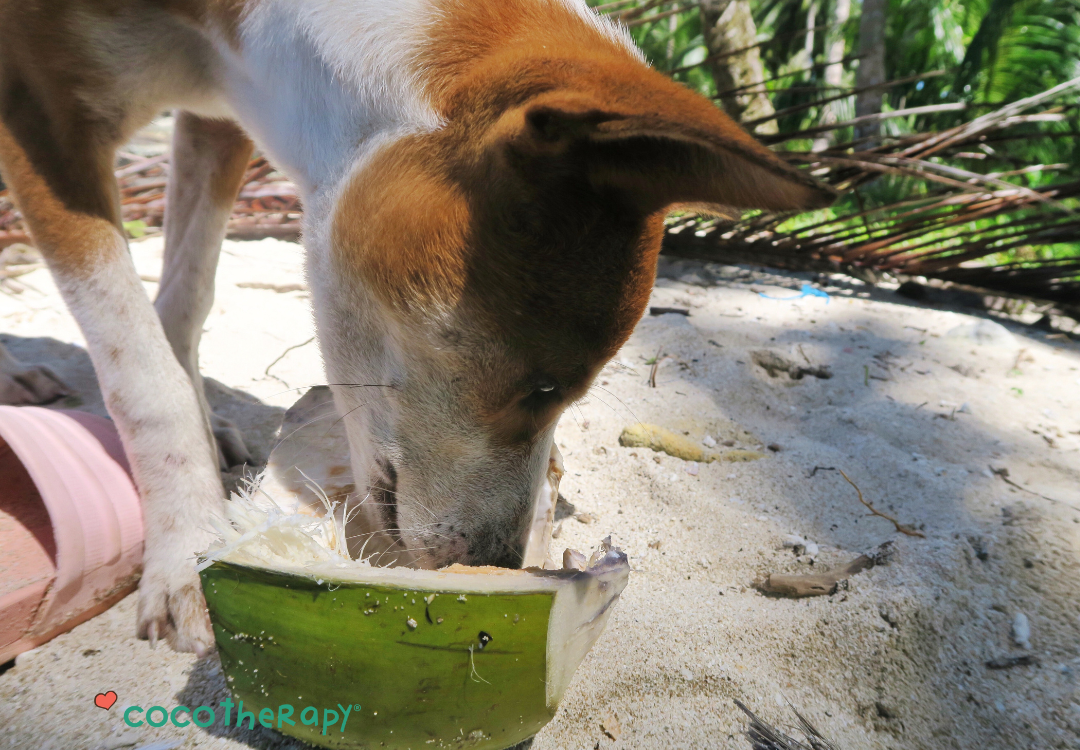If you’ve put time and care into feeding your dog a raw or fresh food diet, you’re already doing a lot to support their health. But there’s one key nutrient that’s easy to miss in these meat-forward meals: dietary fiber. While often dismissed as unnecessary for carnivores, fiber plays a quiet but powerful role in maintaining gut balance.
That’s because your dog’s gut isn’t just processing food – it’s home to trillions of microbes that influence digestion, immune strength, and even mood. Feeding these microbes the right kind of fiber can help your dog thrive from the inside out.
In this post, we’ll explore how fiber affects the gut microbiome, the benefits it offers, and easy, natural ways to include it in your dog’s diet. By the end, you’ll have a better understanding of why fiber is an essential nutrient for your four-legged friend.

Why Fiber Deserves a Place in Your Dog’s Bowl
Most raw or fresh diets focus on protein, fat, and moisture, all of which are important. But fiber often gets left out, especially when meals are centered on muscle meat, organs, and bone. While these components are nutrient-dense, they contain little to no fiber.
Dogs are natural omnivores and benefit from a broader nutritional range than pure carnivores. In the wild, their ancestors consumed fur, feathers, and plant material from prey animals’ stomachs – all of which contributed small but valuable amounts of fiber. Modern dogs may not eat rabbits whole, but their guts still appreciate the same support!
The Gut Microbiome and Why It Matters
Your dog’s gut microbiome is the community of bacteria, yeasts, and other microbes that live in their digestive tract. These microorganisms play a major role in how food is broken down, nutrients are absorbed, and waste is eliminated. But their influence goes even further.
A healthy microbiome supports the immune system, reduces inflammation, helps regulate blood sugar, and can even impact your dog’s mood and behavior. When the balance of microbes is off (often due to diet, stress, medications, or illness) your dog may experience digestive issues, dull coat, fatigue, or recurring infections.
That’s where fiber plays an important role. This plant-based nutrient is one of the most effective tools for feeding beneficial gut bacteria and helping them keep the harmful ones in check.
How Fiber Supports the Microbiome
Not all fibers are created equal, and different types benefit the gut in different ways.
Soluble fiber dissolves in water and ferments in the colon, producing short-chain fatty acids (SCFAs) like butyrate that nourish the gut lining and reduce inflammation. Insoluble fiber doesn’t ferment as much, but it helps regulate bowel movements and keeps everything moving smoothly.
When your dog eats fiber, beneficial microbes break it down and use it as fuel. This fermentation process supports gut health in multiple ways:
- It promotes microbial diversity, which is linked to better immune function.
- It helps maintain the protective mucus layer of the intestines.
- It reduces populations of harmful bacteria by giving the “good guys” a leg up.
Studies show that even small increases in dietary fiber can significantly improve the balance and stability of the microbiome in healthy dogs. That's why it's such an important nutrient to include in your pup's diet.
In a moment, we'll highlight some important studies on fiber for dogs. But first, let's take a closer look at the benefits of fiber for your canine companion.
Benefits of Fiber for Dogs'
While dogs on raw or fresh diets already benefit from high-quality nutrients, adding fiber takes things a step further. Here’s how the right kind of fiber can positively impact your dog’s health:
- Regulates digestion. Fiber helps firm up loose stools, relieves constipation, and promotes regular bowel movements. This can be especially helpful for dogs with sensitive stomachs or those transitioning to a new diet.
- Supports gut bacteria. Prebiotic fibers feed beneficial microbes that protect the digestive tract and boost nutrient absorption. A healthier microbiome means a healthier dog overall.
- Improves immune function. About 70% of the immune system is housed in the gut. A balanced microbiome supported by fiber can reduce inflammation and help the immune system respond appropriately to threats.
- Helps manage weight. Fiber adds volume to meals without extra calories, helping your dog feel full and satisfied. This can be especially helpful for dogs prone to weight gain or on portion-controlled diets.
- Naturally expresses anal glands. Fiber bulks up your dog’s stool, which can help apply natural pressure to the anal glands during bowel movements – reducing the risk of impaction.
- Supports detox pathways. Insoluble fiber helps bind to waste and toxins in the digestive tract, carrying them out of the body more efficiently.
- Stabilizes blood sugar. Certain fibers – like those found in pumpkin or coconut – can slow glucose absorption, helping maintain more stable blood sugar levels throughout the day.
- Mimics ancestral diets. In the wild, dogs consume fibrous materials from prey animals. Adding fiber to their meals helps replicate this natural balance even when feeding clean, prepared foods.
What Studies Say About Fiber for Dogs
Fiber isn’t just a nice add-on, it’s scientifically proven to make a difference. A study published in mSystems investigated the effects of dietary fiber on the microbiome and metabolome in healthy dogs. Dogs that consumed more fiber had notable increases in microbial diversity and enhanced short-chain fatty acid production, particularly butyrate. These SCFAs help maintain the intestinal lining, reduce inflammation, and support immune signaling.
The study also observed an increase in bacterial groups like Faecalibacterium and Bacteroides, both of which are associated with anti-inflammatory effects and healthy gut function. These changes occurred without disrupting the dogs’ overall nutritional intake, highlighting that fiber can enhance health even in already well-balanced diets.
A separate review by Petfood Industry echoed these findings. Researchers observed that higher-fiber diets led to a reduction in harmful bacteria and an increase in beneficial species. Dogs on fiber-enhanced diets also showed signs of improved stool consistency, better nutrient absorption, and a stronger immune response.
Together, these studies make one thing clear. Fiber isn't just a digestive aid, it’s a foundation for long-term health through microbiome support.
Fiber Sources That Work Well with Raw and Fresh Diets
If you're feeding a raw or lightly cooked diet, the fiber you choose should work in harmony with those fresh ingredients. Here are some top options and how they support your dog’s overall health:
- Pumpkin. This healthy squash is rich in both soluble and insoluble fiber, which makes it incredibly versatile. It helps relieve both constipation and diarrhea, supports hydration in the colon, and adds gentle bulk to stools.
- Ground chia or flaxseed. These seeds offer fiber alongside healthy fats, particularly omega-3s. They help lubricate the digestive tract, reduce inflammation, and support smoother digestion while adding texture to meals.
- Steamed or fermented vegetables. Green beans, carrots, broccoli, and even sauerkraut (with no added salt or spices) provide gentle fiber and important micronutrients. Steaming or fermenting breaks down tough fibers, making them easier for dogs to digest while preserving nutritional value.
What About Coconut Fiber?
Coconut fiber is a unique, pet-safe fiber source that pairs especially well with raw and fresh food diets. It’s mostly insoluble, meaning it adds bulk to stool and helps regulate bowel movements – but that’s not all.
Coconut fiber comes from the husk or pulp of the coconut and contains lignin, cellulose, and hemicellulose. While these aren’t digested by your dog, they do help move waste through the digestive system and support healthy elimination. Some small studies suggest coconut fiber may also help foster a balanced microbiome by supporting gut motility and maintaining digestive rhythm.
Coconut fiber is a unique and superior source of dietary fiber because, unlike many plant-based fibers such as psyllium husk, flax, chia, or other seed-derived fibers, it does not contain phytic acid.
Phytic acid is often referred to as an "anti-nutrient" because it binds to essential minerals like calcium, magnesium, iron, and zinc in the digestive tract, reducing their absorption and potentially leading to deficiencies over time, especially with long-term use.
This makes coconut fiber an ideal choice for daily and long-term use, as it provides the gut-health benefits of dietary fiber without the risk of mineral depletion. Coconut fiber supports healthy digestion and regularity, all while preserving vital nutrients in the body, making it a more balanced, mineral-friendly alternative to other high-phytate fibers. In addition, coconut fiber is gentle on the stomach and naturally grain-free. This makes it a great choice for dogs with sensitivities or allergies.
For an easy fiber bump, simply sprinkle a spoonful of CocoTherapy Organic Coconut Chips on top of your dog’s meal. The chips are simply low-heat dried coconut meat with no grains or fillers, so they add gentle insoluble fiber that bulks up stools and keeps things moving without upsetting sensitive stomachs.
If your dog prefers treats to toppers, check out Maggie’s Macaroons. The soft, raw-dehydrated cookies come in Coconut Apple Pie, Coconut Lemoncello, and Coconut Vanilla Flax. Each flavor delivers the same gut-friendly coconut fiber in a tasty, grain-free, low-glycemic snack your pup will love.
Is Your Dog Getting Enough Fiber?
Not all dogs show obvious signs of fiber deficiency, but there are a few things to watch for. If your dog has irregular stools, whether they’re too loose or too firm, fiber might help regulate their digestion.
Frequent scooting could indicate irritated or full anal glands, which often benefit from increased stool bulk. Dogs with frequent gas, mild bloating, or occasional constipation may also benefit from more fiber in their meals.
Weight gain, or lingering hunger after meals, can be another clue. Fiber adds volume without adding calories, which can help keep your dog feeling full and satisfied between feedings. If you’ve noticed any of these signs, consider reviewing your dog’s diet with a veterinarian or pet nutrition expert to explore fiber-rich additions.
Ready to Strengthen Your Dog’s Gut from the Inside Out?
Supporting your dog’s gut health doesn’t mean overhauling their entire diet, it often just takes a small addition in the right place. Dietary fiber is one of those quiet helpers that makes a big impact behind the scenes.
Whether you’re feeding raw, fresh, or anything in between, adding fiber can enhance digestion, support immune function, and keep your dog feeling their best. It’s a simple change that pays off in a big way – for their gut and beyond.
Want to learn more about how coconut fiber can support your pet's gut? Check out our previous post, How Coconut Fiber Supports Digestive Issues.



